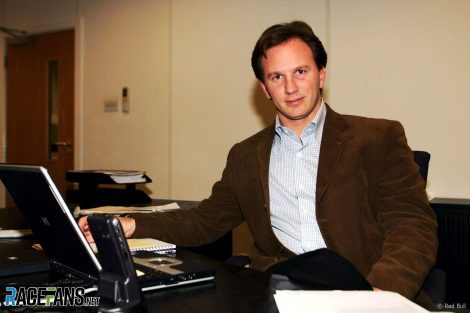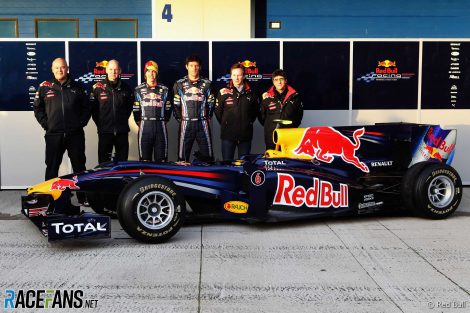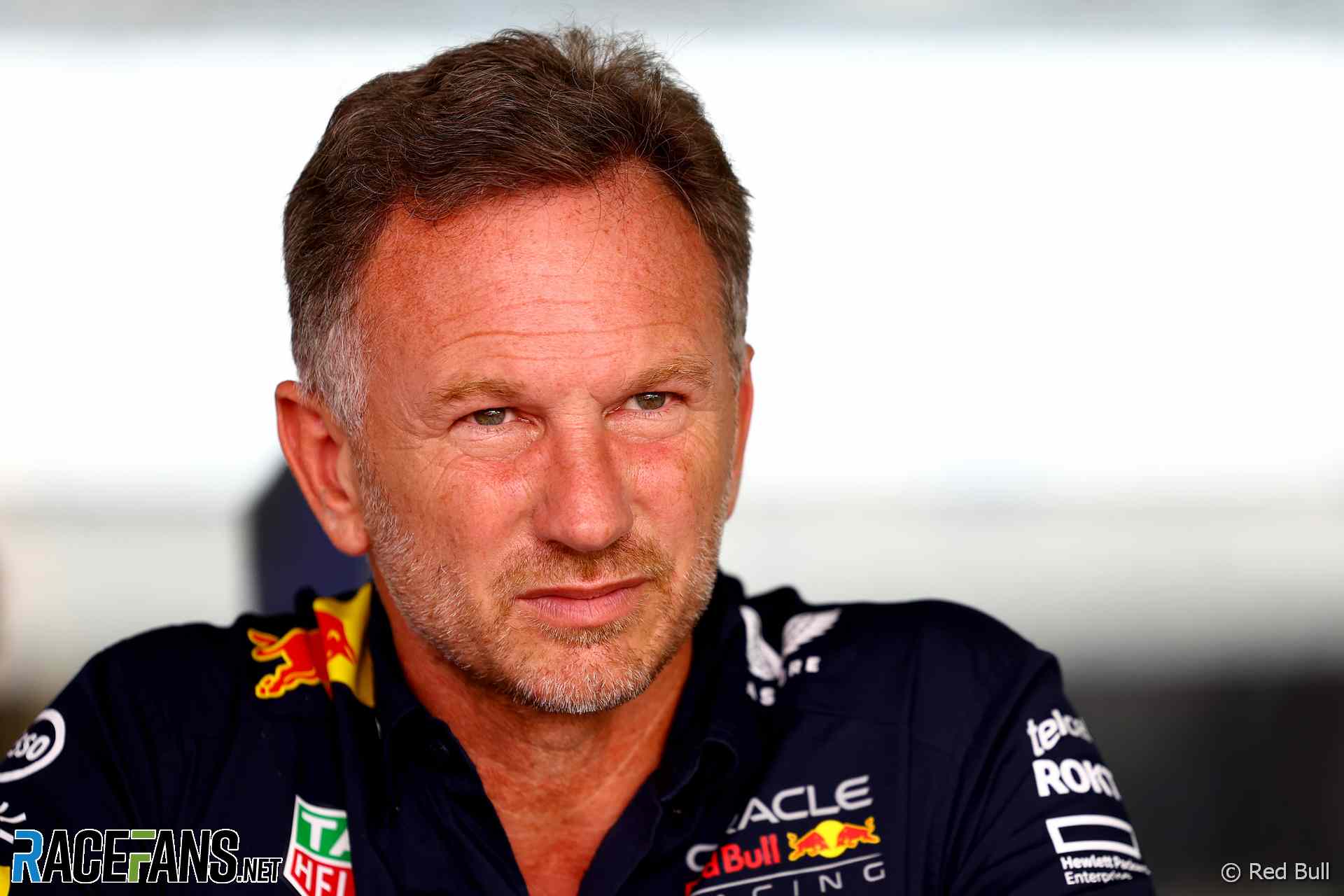Like many powerful individuals in motorsport, Christian Horner began his career as a driver. From third place in the British Karting Championship in 1990, Horner moved onto the British single seater ladder, starting with British Formula Renault 2.0 in 1992 – in which he secured a single race victory on his way to fourth in the championship – to two seasons in British Formula 3 in 1994 and 1995.
Although his F3 results did not necessarily warrant him being promoted to the International Formula 3000 championship, the equivalent of the current Formula 2 series at the time, it did not matter. Horner had set up his own team – Arden International – with financial support from a few key investors, including his own father. The one-car team only qualified for four of the ten rounds that season, and out of the top 20 in each that they did, but Horner at least celebrated the final race of the season with his first point, acquired thanks to a sixth-place finish in Jerez.Following his F3000 campaign, Horner decided to step out of the cockpit and focus on running the Arden team, which grew to become a dominant force in the championship. Arden won a hat trick of teams’ championship titles between 2002 and 2004, including double drivers’ championships for Bjorn Wirdheim and Vitantonio Liuzzi in the final two seasons. Tomas Enge would have made it three in a row, but a disqualification for a failed drugs test cost him the 2002 title.

At just 31 years old, Horner was by far the youngest team principal on the grid. But with the experienced David Coulthard joining from McLaren as driver to help steer the team alongside incumbent Mark Webber, Red Bull quickly became an established midfield team.
Horner gained vital experience over his first five years in the sport, which were some of the most politically volatile Formula 1 had ever seen. He was involved in the heat of the arguments at Indianapolis in 2005 when Horner and six other team principals whose cars ran with Michelin tyres directed their drivers not to start the United States Grand Prix due to safety concerns. He also represented his team’s interests during multiple breakaway threats by the teams over the distribution of revenue in the sport. But on track, Red Bull continued to gradually grow in stature.
Advert | Become a RaceFans supporter and
The most critical piece of the puzzle, however, was the signing of McLaren designer Adrian Newey, who joined for the 2006 season. The team’s Newey-designed cars gradually moved up the grid until the team became grand prix winners and championship contenders for the first time in 2009. Driver Sebastian Vettel, brought up through the Red Bull junior system and their second F1 team Toro Rosso, became a dominant force as the team won four consecutive double world championships between 2010 and 2013 – two of which being among the most dominant seasons ever seen in Formula 1 to date.

Frustrated by his team’s inability to take the fight to Mercedes, Horner increasingly aimed his criticism at power unit suppliers Renault. Eventually, the team opted to switch to Honda for the 2019 season after the Japanese manufacturer’s relationship with McLaren ended after three disastrous seasons. It proved a bold but pivotal move for Red Bull, who leapt ahead of Ferrari in 2020 to become Mercedes’ closest rivals.
The next season, Red Bull and Verstappen fought a brutal, enthralling and, at times, ill-tempered duel with Mercedes, which eventually Verstappen emerged victorious from following an incredibly controversial season finale in Abu Dhabi, becoming the first Red Bull driver to win the championship since Vettel in 2013. However, the next season, Red Bull were fined $7 million by the FIA and had vital wind tunnel and CFD testing time taken away after being deemed to have exceeded the newly-introduced budget cap by $1.8m in 2021.
A furious Horner decried the punishment as “draconian.” But it did little to knock the team off its stride in the seasons that followed.
Advert | Become a RaceFans supporter and
Red Bull have dominated both seasons of the ground effect era of Formula 1’s regulations so far in 2022 and 2023, winning 38 of the 44 grands prix held over the last two years as the team comfortably took both championships each season. Verstappen took a record 19 race victories in 2024 with Horner’s Red Bull team setting new records for most wins by a team in a season, the most points in a season in history and the most consecutive grand prix wins for a team with 15.
Over Horner’s tenure leading Red Bull since its inception, the world champions have won 113 grands prix, taken 95 pole positions, with at least one Red Bull car finishing on the podium in 204 – or 55.28% – of the 369 grands prix the team has started. His departure means that his replacement will be only the second team principal in Red Bull Racing’s history, also ending the longest active tenure for a team principal out of the 10 current teams.
Horner’s position in charge of Red Bull appeared to be in doubt in February 2024, when the team’s owners confirmed he was being investigated over allegations relating to his behaviour. However on the eve of the new season the team announced the complaint had been dismissed and Horner would remain in charge.




